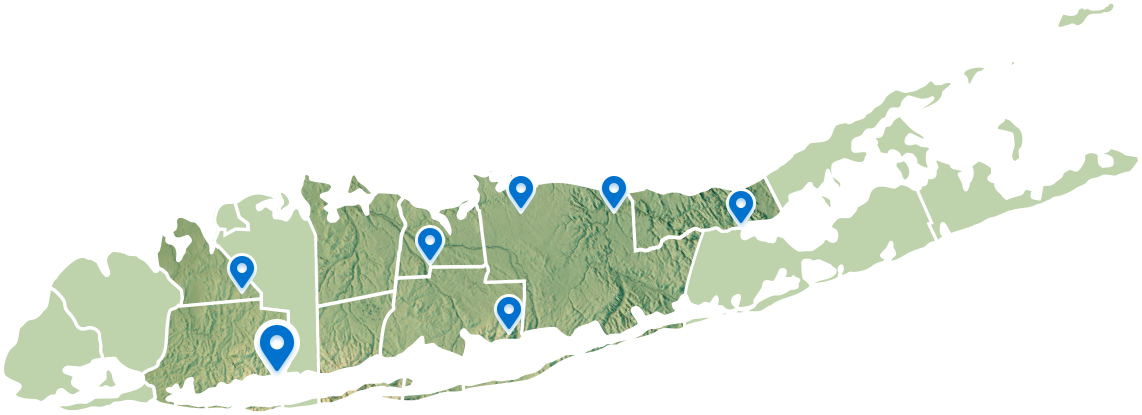- PATIENT FORMS | REQUEST A CONSULTATION | CONTACT US
- 1-844-NSPC-DOC
Dystonia

What Is Dystonia?
Take ActionCauses and Symptoms of Dystonia
Dystonia causes can be categorized as primary, secondary, dystonia-plus or Heredodegenerative:
Primary — considered idiopathic, it has no known cause but may have genetic roots.
Secondary — dystonia that is acquired from known conditions such as:
- Trauma to the brain
- Infections
- Stroke
- Drug reaction
- Brain tumor
- or symptoms of another disease
Dystonia-Plus syndrome — associated with another movement disorder such Parkinson’s disease.
Heredodegenerative — occurring with other neurological disorders.
Early symptoms of dystonia can initially be small occurrences that materialize only after sustained fatigue, stress or physical exertion:
- Involuntary rapid eye blinking or spasms that close the eye
- Dragging, turning or cramping of the foot
- Neck pulling or turning
The progression of the disorder is variable. In advanced stages, the symptoms and contractions may become more pronounced:
- Abnormal gait
- Rigid posture deformation
- Contortion of the spine
- Quick, repetitive twists and movements
Pain and disability may occur as a result of spine and joint degeneration caused by these unusual movements and awkward postures. Depression can also result from feelings of embarrassment.

How Is Dystonia Diagnosed?
A movement disorder neurologist can provide an accurate diagnosis, with a physical examination, review of your medical history, blood tests and brain scans.
What Are Non-Surgical Treatments for Dystonia?
A multidisciplinary team can provide expert dystonia treatments that focus on pain abatement and reducing muscle contractions and posture torsion (twisting).
Non-drug therapies such as physical therapy, occupational therapy, aquatic therapy and stress reduction techniques may be beneficial.
Drug therapies may include neurotransmitter blockers such as dopaminergics (blocks dopamine), anticholinergics (blocks acetylcholine) and botulinum neurotoxin (also blocks acetylcholine, one form is called Botox). Baclofen may also be used to help regulate GABA-B. By interrupting the neurotransmitters, the messages to the brain are disrupted and symptoms are lessened.
However, if your dystonia is resistant to drug and non-drug therapies, surgical treatments may provide improved results.
Expert Surgical Treatments for Dystonia at NSPC
NSPC Brain & Spine Surgery (NSPC) (NSPC) has offices throughout New York’s Queens, Nassau and Suffolk Counties to provide expert brain treatments for a variety of movement disorders. Our neurosurgeons provide the best state-of-the-art surgical options for brain-related issues.
Using microelectrode recordings, a neurosurgeon may be able to pinpoint the area of the brain responsible for the involuntary movements. The thalamus and globus pallidus of the brain may be responsible, and therapeutic lesioning of those areas may lessen symptoms.
Thalamotomy — a small part of the thalamus is targeted. A therapeutic lesion is used to damage the pathways and provide relief of involuntary movements and tremors.
Pallidotomy — also uses image-guided surgery to target part of the globus pallidus, to lessen symptoms and provide relief from certain kinds of dystonia.
Peripheral denervation — targets the nerves and muscles at the site of the dystonia.
Deep brain stimulation (DBS) — is a form of neuromodulation that pulses an electrical current deep inside the brain where movement communication is located.
NSPC’s multi-disciplinary teams include DBS-trained movement neurologists, pain management specialists, neuroradiologists, neurophysiologists and neurosurgeons, so you get world-class treatment from leading experts in the NY region—including Long Island.

Related NSPC Center
Movement Disorder Center
Our experienced physicians specialize in a range of neurosurgical subspecialties and related fields such as movement disorders including Dystonia, Essential Tremor, Parkinson’s Disease, and Spasticity. Our multidisciplinary team approach, advanced diagnostic tools, award-winning doctors, and state-of-the-art technologies provide world-class care, right here, in the Long Island, New York, area.
Physicians
Connect With Our 7 Convenient Locations
across Long Island, NY
Our expert physicians, surgeons and doctors are ready to serve you at our 7 convenient locations across Long Island, NY. Connect today to learn how our award winning, world class experts can help.
4250 Hempstead Turnpike Suite 4,
Bethpage, NY 11714
(516) 605-2720
COMMACK
353 Veterans Memorial Hwy,
Commack, NY 11725
(631) 864-3900
One Hollow Lane, Suite 212
Lake Success, NY 11042
(516) 442-2250
MANHATTAN
215 E. 77th Street Ground Floor
New York, NY 10075
(646) 809-4719
PORT JEFFERSON STATION
1500-8A Route 112,
Port Jefferson Station, NY 11776
(631) 828-3001
100 Merrick Road, Suite 128W
Rockville Centre, NY 11570
(516) 255-9031
WEST ISLIP
500 Montauk Hwy
West Islip, NY 11795
(631) 983-8400
World
Class
Expertise
For over 50 years & 350,000 patients NSPC has been a trusted global medical leader.
Contact us today for an appointment or consultation.

